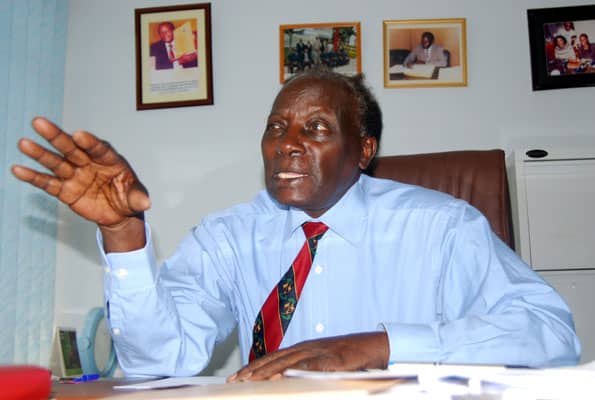Legacy of Justice Kanyeihamba Sparks National Debate on Leadership and Uganda’s Democratic Future

KAMPALA — The passing of retired Supreme Court Judge George Kanyeihamba on July 14, 2025, has stirred deep reflection and debate across Uganda, as the country grapples with his controversial final assessments of its political leadership—past and present.
Widely respected for his courage and integrity, Justice Kanyeihamba was one of the few high-ranking judicial officers to openly challenge the status quo.
His most famous decision came in 2006 when he dissented from the Supreme Court’s majority ruling and declared President Museveni’s re-election fraudulent—a move that underscored his long-standing commitment to judicial independence.
But it is his parting words that now dominate the national conversation. In a widely circulated statement attributed to the late jurist, Kanyeihamba declared: “All Ugandan leaders, myself included, have failed this country.”
The statement, interpreted as a sweeping indictment, drew no distinction between former strongmen like Idi Amin and Milton Obote, long-time President Museveni, and opposition leader Robert Kyagulanyi—popularly known as Bobi Wine.
The controversial inclusion of Kyagulanyi, who has never held executive office, alongside historically autocratic figures, has provoked strong reactions from both supporters and critics.
“It is misleading to lump Bobi Wine with Amin or Obote. He hasn’t had the chance to lead, let alone fail,” said Sarah Kaggwa, a political analyst at Makerere University.
“This kind of framing seems less about a fair historical critique and more about controlling the political narrative.”
The media outlet that first published the quote came under scrutiny, with some accusing it of editorial bias aimed at discrediting opposition voices.
Others argued the coverage reflected Kanyeihamba’s increasingly contrarian tone in his later years, which defied easy ideological categorization.
No independent verification has been provided to confirm the full context of the judge’s remarks, though they have been widely quoted across both traditional and social media.
Yet the broader implications of Kanyeihamba’s legacy remain clear.
“His passing marks the end of an era,” said David Mwesigwa, a political historian at Lira University.
“He was one of the few elites who consistently challenged power structures. Whether you agreed with him or not, he forced the nation to confront uncomfortable truths.”
That confrontation is particularly timely. Museveni’s tenure, now stretching into its fourth decade, continues to draw criticism for the erosion of term limits and suppression of dissent.
At the same time, Bobi Wine’s rise as the face of Uganda’s youthful opposition has unsettled the political establishment, even as his electoral bids have been repeatedly thwarted.
Kyagulanyi’s critics argue he has yet to articulate a coherent governance alternative beyond protest. His supporters, meanwhile, say his appeal lies in embodying a generational shift in aspirations and a rejection of Uganda’s entrenched political class.
“Justice Kanyeihamba’s critique should be seen as a mirror to the entire system,” said journalist Andrew Karamagi. “It’s not just about presidents—it’s about institutions, citizens, and a culture of impunity that we’ve tolerated for decades.”
Kanyeihamba’s life traversed Uganda’s tumultuous post-independence period.
From serving as Attorney General to joining the Supreme Court, and later becoming an outspoken critic of the same system he once served, his journey reflected the contradictions of a country caught between democratic aspirations and authoritarian legacies.
As Uganda mourns his death, his words continue to echo through its political corridors—not as a final judgment, but as a challenge.
Whether Ugandans choose to defend, dismiss, or dissect his statements, the late judge has reignited a necessary reckoning.
In death, as in life, George Kanyeihamba remains a catalyst for debate—and perhaps, for change.



0 Comments